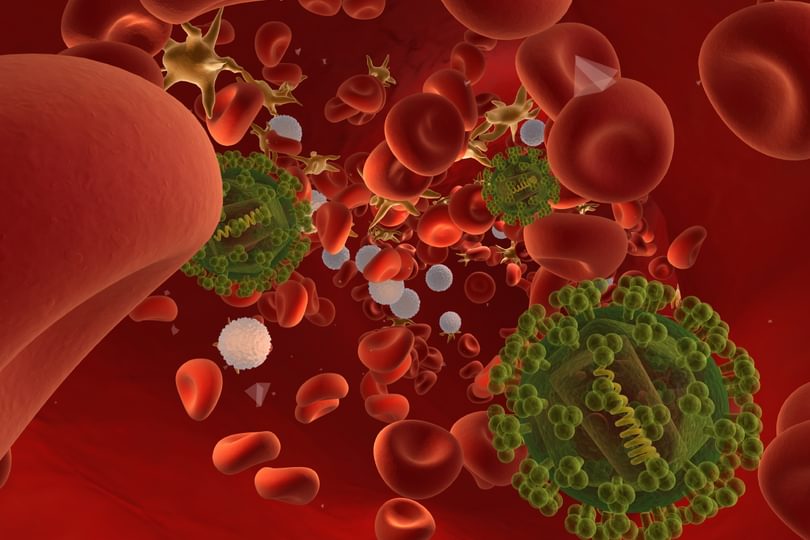
A new clinical trial launched today will investigate whether HIV can be cured by waking a ‘reservoir’ of cells infected with sleeping virus and killing them using the immune system.
HIV expert Dr John Frater, Co-Director of the Oxford Martin Institute for Emerging Infections, is leading the laboratory work on the RIVER trial testing a new 'Kick and Kill' idea.
HIV is a virus infection that is treatable using Antiretroviral Therapy (ART). ART works by stopping HIV from copying itself and thus spreading. ART reduces the amount of virus in the blood stream to such low levels that it prevents the virus from being passed on to others, and gives the body’s immune system a chance to recover. But ART alone cannot cure HIV. This is because it only works on HIV infected cells that are active, and most cells infected with HIV in the human body contain resting or sleeping virus. These cells represent an invisible reservoir of HIV, and are one of the reasons it is so difficult to cure the infection. If ART is stopped, the virus returns. There is a strong interest amongst people living with HIV, as well as researchers, to look at different ways that could help to cure HIV and allow people to remain healthy without needing lifelong medication.
The RIVER study plans to test a new approach to HIV treatment, where in addition to standard ART, novel drugs are being tested to see if they can wake up or activate the HIV infected reservoir cells. The additional medication that wakes up the virus from the reservoir cells is called vorinostat – the ‘kick’. It is a drug that is usually used to treat cancer. These activated cells then need to be removed by cells of the immune system. RIVER will use two vaccines that will teach the cells of the immune system to recognise these newly activated reservoir cells and kill them - the ‘kill’.
Around 50 patients with recent HIV infection will take part in the study. There will be two groups of patients in the study – those receiving the vorinostat and vaccines alongside ART, and those receiving ART only. The study will compare the change in the size of the reservoir in these two groups.
The RIVER study is being conducted by the CHERUB collaboration, an alliance of HIV researchers at Oxford University, Imperial College London, the University of Cambridge, UCL, and King’s College London. The study is funded by the Medical Research Council with support from industry partners MSD and GSK.
There are 6 centres participating in RIVER: Royal Free Hospital, St Mary’s Hospital, Mortimer Market Centre, Royal Sussex County Hospital Brighton, Chelsea and Westminster Hospital and St Thomas’s Hospital.
“We know that targeting the HIV reservoir will be extremely difficult,” said Dr Fidler, who is leading the study at Imperial College, alongside Dr Frater. “Research in our labs has led to some very promising results. We now have the opportunity to translate that into a possible new treatment, which we hope will be of real benefit to patients.”
The results of the RIVER study are expected in 2018.